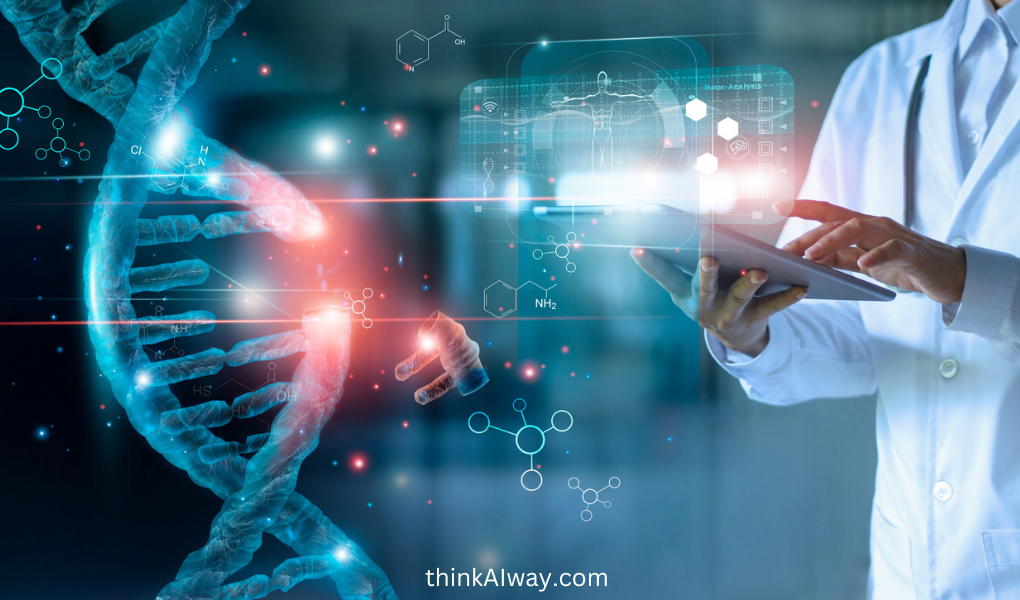There are many common areas between biology and artificial intelligence where these fields intersect, such as bioinformatics, computational biology, and AI applications in healthcare. By integrating AI tools into biology education, Biology students can gain a deeper understanding of complex biological processes, access advanced data analysis capabilities, and contribute to cutting-edge research in the field. Biology students need to develop a basic understanding of AI concepts and applications to fully leverage these tools effectively.

Some skills can be transferable to AI by biology students, such as data analysis, critical thinking, and problem-solving.
Artificial intelligence (AI) can be a valuable tool for biology students in various ways, enhancing their learning experience and contributing to research. Here are several ways in which AI can assist biology students.
- Data Analysis and Interpretation: AI can process large datasets quickly, helping students analyze complex biological data, such as genomic sequences, proteomics, and metabolomics. Machine learning algorithms can identify patterns, trends, and correlations within biological data, aiding in the interpretation of experimental results.
- Bioinformatics: AI is widely used in bioinformatics to analyze biological information, such as DNA sequences and protein structures. Tools powered by AI can assist in predicting gene functions, identifying potential drug targets, and understanding the relationships between different biological elements.
- Drug Discovery: AI algorithms can be employed in virtual screening to identify potential drug candidates by analyzing molecular structures and predicting their interactions with biological targets. Machine learning models can speed up the drug discovery process by predicting the biological activity of compounds and reducing the need for extensive experimental testing.
- Image Analysis: AI can automate the analysis of biological images, such as microscope images of cells or tissues. This helps in quantifying cellular features, identifying anomalies, and improving the efficiency of image-based research. Neural networks, particularly convolutional neural networks (CNNs), have been successful in image recognition tasks in biology.
- Personalized Medicine: AI can contribute to the development of personalized medicine by analyzing individual patient data, including genetic information, to tailor treatment plans based on specific genetic profiles. Predictive modeling can help forecast patient responses to different treatments, optimizing therapeutic outcomes.
- Virtual Labs and Simulations: AI-powered virtual labs and simulations provide biology students with realistic and interactive learning environments. These tools allow students to experiment with biological concepts in a virtual setting, enhancing their understanding of complex processes.
Opportunities for biology students
Biology students can explore the intersection of biology and AI in fields like bioinformatics and computational biology. Apply AI techniques to analyze biological data, such as genomic sequences, protein structures, and biological pathways, contributing to advancements in healthcare, genetics, and drug discovery. The opportunities for biology students in AI are diverse, spanning various applications that contribute to advancements in healthcare, environmental science, and biological research. By embracing AI, biology students can play a pivotal role in shaping the future of scientific discovery and innovation.

- Genomics and Precision Medicine: Biology students can contribute to genomic research by applying AI algorithms to decipher complex genetic patterns, identify disease markers and tailor treatments based on individual genetic profiles
- Ecological Modeling and Conservation: Biology students can engage in projects that use AI to analyze ecological data, monitor species distribution, and develop models for sustainable environmental practices.
- Neuroscience and Brain-Computer Interfaces: Biology students can explore the interface between AI and neuroscience, contributing to advancements in brain-machine communication, neuroprosthetics, and cognitive neuroscience
- Drug Discovery and Development: Biology students can collaborate with AI researchers to improve drug development processes, potentially leading to the discovery of novel therapeutics.
- Human-Computer Interaction in Biology: Biology students can work on enhancing user interfaces, ensuring that AI-powered tools are user-friendly and efficient for researchers in biological laboratories.
- Interdisciplinary Collaborations: Biology students can actively participate in interdisciplinary research teams, contributing their biological expertise to AI projects and gaining valuable insights from other disciplines.
- Data Analysis and Visualization: Biology students can specialize in data science and visualization, using AI to extract meaningful insights from large datasets in areas like genomics, proteomics, and systems biology.
stories of Successful People in AI
To truly understand the potential of a biology student in AI, one must explore real-life success stories. Numerous individuals have successfully bridged the gap between biology and AI, making groundbreaking contributions to fields such as computational biology, drug discovery, and personalized medicine. These success stories serve as inspiration, demonstrating that the fusion of biology and AI is not only possible but can lead to extraordinary achievements. There are a few names listed with their achievement and success.
- Dr. Fei-Fei Li: Dr. Li holds a Ph.D. in Electrical Engineering and Computer Science. She initially studied biology before transitioning to computer vision and AI.
- Achievements: As a renowned computer scientist, Dr. Li is a pioneer in computer vision, co-directing the Stanford Artificial Intelligence Lab, and playing a key role in ImageNet, a dataset instrumental in advancing image recognition using AI.
- Dr. Daphne Koller: Dr. Koller holds a Ph.D. in Computer Science but began her academic journey in biology.
- Achievements: Co-founder of Coursera, Dr. Koller is an expert in machine learning and probabilistic graphical models. Her work has influenced both AI education and research.
- Dr. Andrew Ng: Dr. Ng holds a Ph.D. in Machine Learning and started his academic career in electrical engineering, with a focus on biology.
- Achievements: Co-founder of Google Brain and Coursera, Dr. Ng is a leading figure in AI education and research. He has been instrumental in making AI accessible to a broader audience.
- Dr. Cynthia Breazeal: Dr. Breazeal holds a Bachelor’s degree in Electrical and Computer Engineering and a Ph.D. in Robotics. Her early interest was in psychology and biology.
- Achievement: A pioneer in social robotics, Dr. Breazeal founded the Personal Robots Group at the MIT Media Lab. Her work blends biology, psychology, and AI to create socially intelligent robots.
